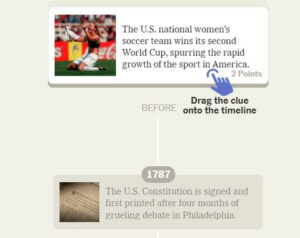During yesterday’s State of the State address, Gov. Phil Murphy claimed, in the context of his push for reforming reading instruction, “New Jersey has the best public education system in the country.”
That’s been his byline, lifted directly from NJEA’s website. Yet how does one square this assertion with the reality on the ground, one in which half of NJ schoolchildren can’t read on grade-level, with percentages far lower in districts that educate disproportionate numbers of Black and Brown students? (Trenton: 10%; Asbury Park: 2%; Newark: 9%.)
You can’t. That’s why Murphy and the Department of Education are promising a (commendable!) shift to incorporating the science of reading into instruction while doubling down on their crusade to lower standards. It’s an odd amalgam of contradiction: They’re saying phonics (and, hopefully, core knowledge) is a science-based reform that can genuinely help students learn to read, while simultaneously claiming that standardized assessments and high standards are irreconcilable with tenets of educational equity.
It doesn’t compute. One aspect is driven by empirical evidence. The other is a hodgepodge of racism dressed up as social justice.
Here’s Lamont Repollet, Murphy’s first Education Commissioner fatalisticcally arguing, “I don’t think it’s good for the self-esteem of students to keep failing test after test that they already know they’ll fail.”
How is is not racist to say it’s inevitable that low-income students of color will “keep failing test after test”? (I’m not sure how he explains away student outcomes at Newark’s North Star Academy, where 85% of students are low-income and 99% are of of color yet 62% of students reach proficiency levels in reading, well above the state average.)
Here’s Repollet’s successor Angelica Allen-McMillan who tried to pervert equity into “equal outcomes” and told the State Board of Education, “everything must be seen through an equity lens. Individuals may have biases. At the DOE we value the lens of equity, we value the processes that would be equitable.”
Not coincidentally, here’s Deborah Cornavaca, NJEA’s Director of Government Relations, who told the NJ Joint Committee on Public Schools last month that NJ’s system of standardized testing is “antithetical to educational equity” and an example of “structural racism.”
So, let’s ask the question: Are standardized tests racist? Are they indeed, as Ibram X. Kendi argues, “the most effective racist weapon ever devised to objectively degrade Black minds and legally exclude their bodies”?
No. As David Leonhardt of the NY Times pointed out last week, tests like the SAT’s (and NJ’s standardized tests, which Cornavaca was referring to) are far more predictive of student potential than wildly-inflated report card grades. Instead, says Leonhardt, “the evidence instead suggests that standardized tests can contribute to both excellence and diversity.”
If we get rid of objective measurements of student growth, we’ll still have low outcomes but they’ll be hidden and Gov. Murphy can pretend we have the best public education system in the nation. Kati Haycock: “Kids who are not tested end up not counting.”
My colleague Sharif El-Mekki, CEO of the Center for Black Educator Development, says those who “claim to be the closest allies of Black and Brown communities” believe that acknowledging achievement gaps ”just reinforces inequality.”
“I want to be clear,” El-Mekki continues. “Far too many of our children can’t read or do math. Observing this fact and finding it unacceptable is not racist. Indeed, to excuse it away with some virtue-signaling waving of hands is racist. To ignore the impact that it will have on the lives of young Black and Brown students and on our communities’ future, that is racist. To turn and run from the very real and often deadly barriers, challenges and threats that Black and Brown children inhabit daily because it’s a cleaner fit with your intellectual project to do so rather than to do the hard work of improving our public education system is dishonest and lazy. Worse still, it is premised on racist notions of the helplessness of our Black and Brown children and communities.”
I want the Governor to say, “our Black and Brown students are fully capable of excelling once we do the hard work of improving NJ’s public school system.” I want our new Commissioner (whomever that is) to articulate the importance of objectively measuring student outcomes so we can, for instance, see what North Star is doing right and Asbury Park is doing wrong. I want the State Board of Education to demand that the DOE implement an accountability system to enforce effective reading instruction, that we adopt granular assessments that are turned around quickly so they’re of use to teachers and families, and that we retain high academic standards.
Anything else is just thinly-cloaked racism.
#Murphys #State #State #Highlights #Social #Justice #Morph #Racism #Education #Report




More Stories
Asbury Park Insider: This ‘Leader’ Is Trying to Shove In Her Bestie as New Superintendent – NJ Education Report
Help! I Got in Trouble for “Liking” a Snow Day Post
Equity in education – the digital solution